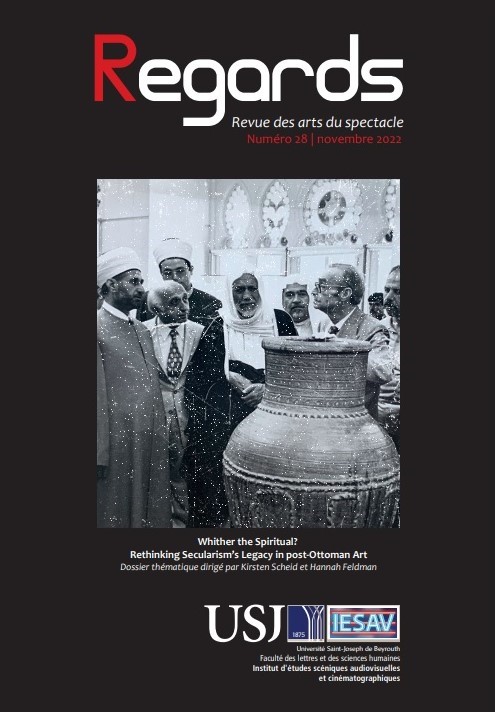Abstract
The present article examines critically the spiritual-secular binary in modern and contemporary art from the SWANA region and by artists with heritage from that region who live(ed) elsewhere. Given this binary’s origin in the European Enlightenment’s view of religion and its epistemic canonization through post-Enlightenment ideas on art and culture in the colonial era, this examination is made from within the framework of current decolonizing art historical discourses and their postcolonial background. The reflection begins with a key moment of global modernism as it is underpinned by the colonial diffusion of secularism. It then proceeds to expound the cultural shifts in postmodernism and contemporaneity as marked by a renewed interest in spirituality across the region. This inspection allows for the identification and disentanglement of a knot of epistemic problems, theoretical misconceptions, and untenable contradictions in the decolonizing art historical literature. In particular, it uncovers the slip toward an anti-colonial ideology that attempts to rewrite history at the risk of minimizing foundational historical facts. Central to the entire problematic is the misconstrued concept of modernity linked, in an exclusive and reductive manner, to hegemonic Euro-American modernist thought and its brand of secularism. Offering a fresh look at the momentous cultural-artistic events of the modern and contemporary period and a much needed re-definition of the chief concepts at stake in them, this essay opens up new directions of research.

